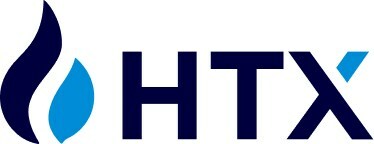AEON Kicks Off the World’s Largest TON Ecosystem Gaming Hackathon in Partnership with TON and Launches Opening Ceremony in Singapore
SINGAPORE, Sept. 12, 2024 /PRNewswire/ — AEON, the next-generation modular payment protocol, is thrilled to announce the highly anticipated GameOn TON Global Gaming Hackathon in partnership with The Open Network (TON) Foundation and Nomad Capital, with its opening ceremony in Singapore on September 19th.
This prestigious global event is the world’s largest TON ecosystem gaming hackathon, boasting a several million prize pool, including investment, grants and prize rewards, aiming to attract top talent and foster innovation within the TON gaming ecosystem.
Overview of GameOn TON Global Gaming Hackathon
The GameOn TON Global Gaming Hackathon is a groundbreaking event hosted by AEON, TON Foundation and Nomad Capital, with confirmed co-host with Winking Studios, OKX Wallet, Alibaba Cloud, Gate.io, One Piece Labs, Game3Girl Ventures and Draper Associate. GameOn TON is the world’s largest gaming hackathon focused on the TON ecosystem, designed to accelerate the development of innovative Web3 games and to increase developer adoption of the AEON crypto payment protocol.
Spanning from September to December 2024, the hackathon will offer a dynamic blend of virtual participation and exciting in-person events held across major cities like Singapore, Sydney, and Dubai. This global initiative invites developers, gaming enthusiasts, and blockchain innovators to come together, showcase their creativity, and actively contribute to the fast-growing TON gaming ecosystem.
The Opening Ceremony Agenda
The event will kick off with opening speeches by leaders from the TON Foundation, AEON, and Nomad Capital, providing an overview of the hackathon’s background and objectives. Participants will gain insight into the significance of this hackathon and how AEON and TON are driving the future of Web3 payments and gaming.
Following the opening speeches, a series of panel discussions will take place, covering key topics such as TON ecosystem investment, sustainable development in the TON gaming ecosystem and strategies to TON mass adoption. These sessions will be led by experienced industry veterans, investors and thought leaders, providing participants with valuable insights and knowledge.
The event will also include a networking session, giving attendees a prime opportunity to exchange ideas, foster connections, and set the stage for future development and collaboration.
Register Now: Save the Date for September 19th
Are you a Web3 gaming enthusiast looking for an unforgettable experience? Join us at the GameOn TON Hackathon Opening Ceremony, where you can connect with like-minded individuals, learn from industry experts, and showcase your skills.
Don’t miss the chance to participate in an event designed for knowledge sharing, networking, and media exposure, while competing for exciting awards and potential investment opportunities!
About AEON
AEON is a next-generation modular payment protocol designed to unify the standard of crypto payments and enable real-world connectivity. By simplifying the integration, processing, and settlement of crypto payments, AEON offers low-cost, verifiable, and secure payment processing.
Developing a robust crypto payment standard akin to Visa, AEON aims to connect web3 infrastructures with mass adoption use cases, ensuring adaptability, liquidity, and efficiency and supporting on-chain payment methods such as subscriptions, global fiat rails, and tips.
About TON Foundation
Established in Switzerland in 2023, The Open Network Foundation is a non-profit organization funded entirely by community contributions. The Open Network Foundation acts in the interests of the community by supporting initiatives that help achieve The Open Network’s mission.
The Open Network Foundation empowers TON projects without controlling TON technology and is one of many network contributors in the decentralized TON Community. TON operates on an open-source codebase, allowing contributions from anyone, and has no single controlling authority.
About Nomad Capital
Nomad Capital is an operator fund that provides hands-on assistance to help projects develop and scale. We not only have strong experience in investing but also in building and managing businesses, which gives us a more comprehensive angle from which to evaluate investment opportunities than other funds.
![]() View original content:https://www.prnewswire.com/news-releases/aeon-kicks-off-the-worlds-largest-ton-ecosystem-gaming-hackathon-in-partnership-with-ton-and-launches-opening-ceremony-in-singapore-302247060.html
View original content:https://www.prnewswire.com/news-releases/aeon-kicks-off-the-worlds-largest-ton-ecosystem-gaming-hackathon-in-partnership-with-ton-and-launches-opening-ceremony-in-singapore-302247060.html
SOURCE AEON

Featured Image: depositphotos @ makidotvn





